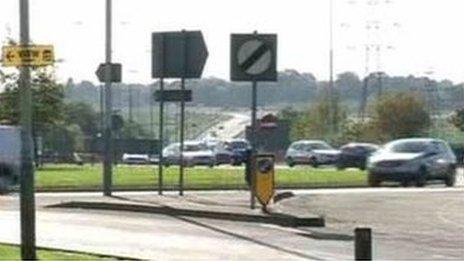60mph motorway speed limit plan shelved
- Published
- comments
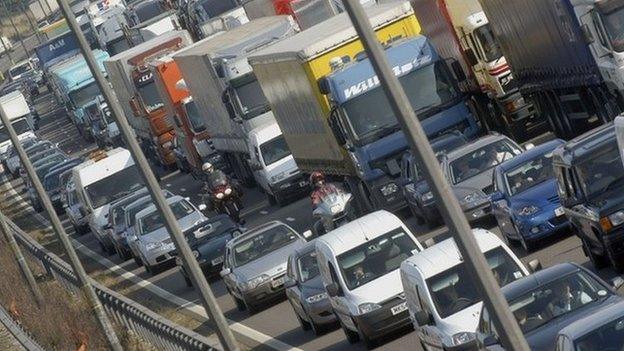
Plans to impose a 60mph speed limit on parts of the M3 and M1 motorways to cut air pollution have been put on hold.
Transport Secretary Patrick McLoughlin has given the Highways Agency 18 months to devise alternative methods to tackle pollution on a 32 mile stretch of the M1 in Derbyshire and South Yorkshire and 2.8 miles of the M3 in Surrey.
If none can be found a 60mph limit could still be imposed at peak times.
But Mr McLoughlin has ruled out a blanket cut in the speed limit.
The Highways Agency has been asked to look at different ways of measuring local air quality.
'Smart highways'
It is also looking at alternative methods of cutting pollution, such as erecting high barriers along the relevant sections of the motorway to funnel fumes away from ground level. These have been found to cut pollution and noise in large-scale tests in Holland, external, where speed limits have also been reduced on busy trunk roads amid concern about air quality.
Another option might be banning heavily-polluting vehicles at certain times.
The air quality concern about the M1 and M3 focused on road-widening schemes aimed at cutting congestion.
Construction is about to begin on converting two sections of the M1, between junctions 28 and 31 in Derbyshire and junctions 32 and 35a in South Yorkshire, and on the M3, between junctions 2 and 4a to allow hard shoulder running either permanently or at busy periods.
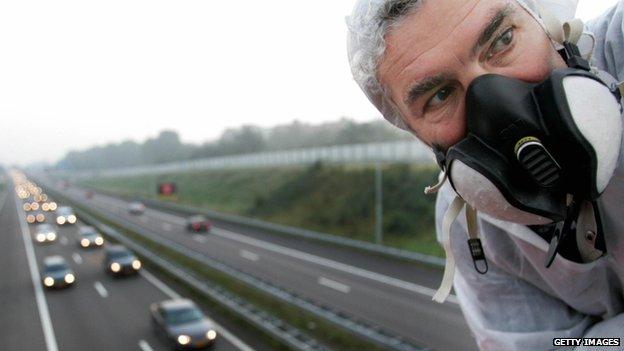
Pollution from busy roads has sparked protests in Holland
The speed limit can be varied or lanes closed in emergencies through the use of overhead message signs.
The government claims these so-called "smart motorways" will increase capacity by a third and improve journey times up to 10% through the M1 schemes and 15% on the M3, where average speeds are currently 45mph during rush-hour.
But the Highways Agency is concerned that the extra traffic will mean they will break EU air quality rules, and harm the health of people living and working near the motorways. It consulted on proposals to limit speeds to 60mph between 7am and 7pm seven days a week to cut pollution.
'Strongly opposed'
But Mr McLoughlin has rejected this approach, saying the government was committed to maintaining the 70mph limit on motorways, particularly at weekends and other periods when traffic was lighter.
He said: "Let me be absolutely clear, I want all motorways to run at 70mph. While it sometimes makes sense to use variable limits to keep people moving, blanket reductions are not acceptable.
"Smart motorways are an effective and cost efficient way of increasing space on our roads, cutting jams and speeding up journey times and I am pleased to announce the start of work on these schemes."
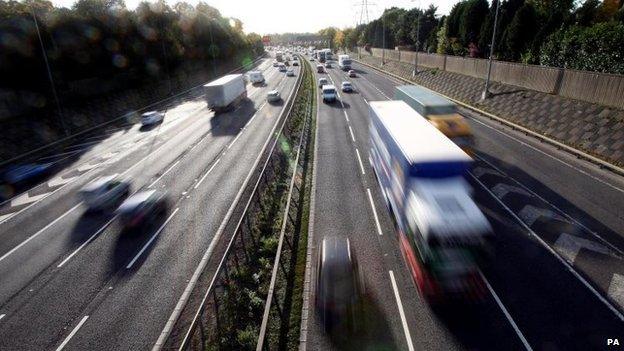
Mr McLoughlin has ordered the Highways Agency to "rigorously investigate alternatives" to the blanket cut in the speed limit as work progresses on the schemes in the next 12 to 18 months.
In the meantime, the Highways Agency will take the legal powers it needs to reduce the speed limit from 70mph at certain times, the Transport department said.
The proposed cut to the speed limit on the M1 was rejected by 93% of people who took part in an online consultation , external- and it was also strongly opposed by businesses and local authorities. The M3 consultation has yet to be published.
'Health emergency'
RAC technical director David Bizley said he was pleased that Mr McLoughlin had "listened to road users and recognised that a 60mph limit on these stretches of the M1 and M3 is the thin end of the wedge".
"However, we also should be mindful that a solution that does not breach air quality limits and keeps traffic moving at 70mph may not be achievable. Let's hope, for the sake of motorists and businesses alike, that it is."
The AA said it was a "victory for common sense".
But the Green Party of England and Wales criticised the decision.
Local transport spokeswoman Caroline Russell said: "Air pollution is a public health emergency and seriously affects the health of those travelling in cars and those living nearby to busy roads.
"Cutting the speed limit to 60mph is a sensible suggestion, it would cut pollution, cut fuel costs for motorists and increase road capacity as slower moving vehicles need shorter stopping distances.
"If Mr McLoughlin really wants to deliver smart motorways he should seize this opportunity to improve journey time reliability and protect our health with 60mph motorway limits."
The Transport department said pollution would be reduced as more low emission vehicles came into use, but progress on this had not been as fast as hoped.
- Published13 February 2014
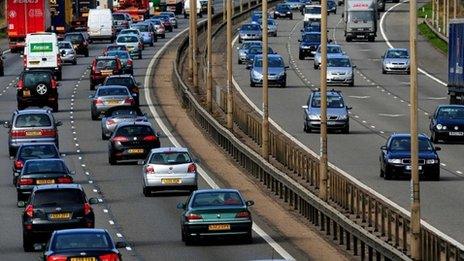
- Published6 January 2014
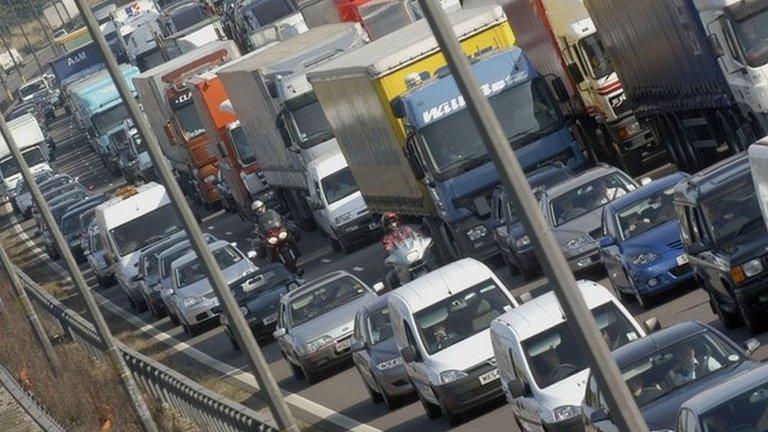
- Published4 January 2014
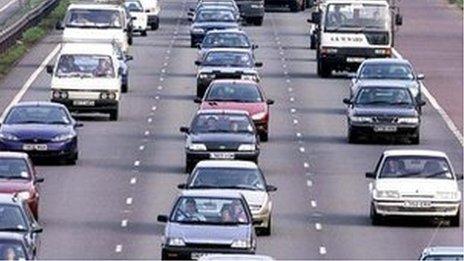
- Published13 November 2013
